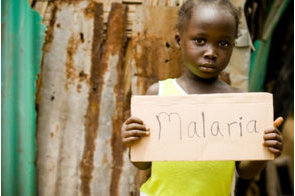New research highlights key interventions to prevent infant mortality

Summary
Lassi said 2.9 million newborns around the world do not live beyond their first month of life.
A new research by a PhD student at University of Adelaide's Robinson Research Institute, in Australia, has identified six key health interventions that can play a critical role in improving a baby's chance of survival during the first months after birth.
"99 per cent of all child deaths occur in low and middle income countries," said Zohra Lassi, who conducted the research at one of Australia's most research-intensive institutions, named after renowned obstetrician, Professor Jeffrey Robinson. Lassi said 2.9 million newborns around the world do not live beyond their first month of life.
The research reviewed more than 60 reproductive, maternal, infant and child health interventions recommended by the World Health Organisation (WHO), to determine the best methods for preventing infant deaths. The study recommended skin-to-skin contact, breastfeeding and the administration of antenatal corticosteroids for women at risk of preterm birth.
The study also found that Vitamin A supplementation, hygienic umbilical cord care and the provision of insecticide-treated bed nets for children are highly effective interventions in low and middle income countries.
Lassi said the promotion and implementation of these interventions was lacking, particularly in sub Saharan Africa and South East Asian countries where infant death rates are highest.
"We didn't specifically identify interventions for low and middle income counties, but since 99 per cent of all child deaths occur in low and middle income countries, all six of these interventions are applicable to those regions, more so than where infection based mortalities are less prevalent," she said.
"We know breastfeeding soon after birth increases a child's chance of survival by 44 per cent in low income countries. [But] since literacy in these countries is low, the mothers are not aware of the significance of these interventions for their child's health," the researcher said.
She also stated that having local health workers empowering women through education and supportive group counselling, could improve the uptake of these interventions.
Co-author of the study, published in the health sciences journal, EBioMedicine, Associate Professor Philippa Middelton, from the University of Adelaide's Robinson Research Institute and the Women's and Children's Health Research Institute, said the research certainly highlights the discrepancies between low and high-income countries.
"Here in Australia, we have one of the lowest infant mortality rates (3 in 1000) but Angola has 96 per 1000 and Afghanistan has 66 per 1000.
"A lot of this is what we already know -- having a skilled birthing attendant, the benefits of breastfeeding -- but those support mechanisms are not always resourced in low income countries. So the message is in part to those governments - many of these deaths must be avoided," Middelton said.
Related
-
Access Bank galvanizes efforts to combat HIV/AIDS epidemic in Nigeria
There is still so much to do to fast-track our response as leaders in various business sectors in the fight against ...
-
Africa nears broader vaccination against malaria
Malaria burden is the highest on the African continent, which accounts for approximately 95% of global malaria cases and ...
-
Dangote-led health coalition appoints new CEO
ABCHealth is focused on improving health outcomes in Africa.









